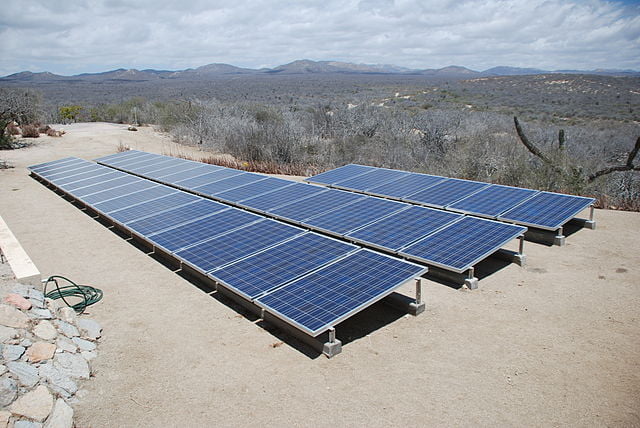The hit US TV show “Revolution” shows what life would be like after an extended period with no electrical power. The picture presented in the J.J. Abrams-produced program is, to say the least, not pretty. But you don’t need a TV show to imagine how hard life is without power; all you have to do, says Israeli energy expert Yosef Abramowitz, is visit Central Africa, where some 90% of the population are still “in the dark.”
Related articles
- Israeli Researchers Use Rust To Store Solar Energy
- Green Peace: The Arab-Israeli Solution For Clean Energy
“For Africa and other parts of the Third World, where a billion-and-a-half people still live without power, electricity is the key to solving a myriad problems,” Abramowitz told The Times of Israel. “That’s why we are announcing a new project that will help bring solar-generated electricity to hundreds of millions of people in the Third World.”
Abramowitz knows about solar energy: His Arava Power Company established Israel’s largest solar field to generate electricity, in Kibbutz Ketura, and was the first company to sign a deal with the government for commercial production of solar-generated electricity. An astute businessman (Arava was an attractive-enough business for Germany’s Siemens to take a 40% stake in the company in 2009), Abramowitz is also known for his social activism (even setting a legal precedent in a free-speech case in the US Supreme Court), his work in Jewish education, and his advocacy for Ethiopian Jewry. In addition, Abramowitz has used his work at Arava to help the Negev Bedouin, supplying electricity for their villages and creating jobs for them.
Solar power just might be the solution
Now, Abramowitz sees a great opportunity to help improve the lives of people in far-flung places such as Rwanda, the Galapagos Islands, and other developing countries, using solar power to bring electricity to places that either don’t have it, or burn diesel fuel in order to generate power. “Not only is diesel oil very expensive, especially for Third World countries that anyway have very little money, but it’s very bad for the environment,” said Abramowitz, citing the 2002 oil spill in the waters of Ecuador’s Galapagos Islands.
“The ship that ran aground spilled almost a million liters (250,000 gallons) of diesel fuel, which was being transported for use in electricity production. The spill caused irreparable damage to a UNESCO World Nature Reserve,” Abramowitz explains. Beginning next month, his production site in the Galapagos will start generating electricity; the goal is to significantly reduce — and eventually eliminate — the need to burn diesel for electrical production.
To that end, Abramowitz, along with partners David Rosenblatt and Howie Rodenstein, established a new company called Energiya Global Capital. Not that Abramowitz is giving up on Israel, but as enthusiasm for solar energy has waned in Israel over the past few years (with policymakers envisioning the natural gas riches that can be extracted from the Mediterranean), the partners that started Arava see a great humanitarian — and business — opportunity abroad.
A greener, more affordable option
“They are rolling out the red carpet for us in Africa and elsewhere,” proclaimed Abramowitz. “The prices of electricity production from solar have dropped so much in recent years that it makes sense for countries that don’t already have established fossil-fuel supply systems to deploy solar systems.” With the help of funding from the US and logistics from the UN and nongovernmental organizations, Energiya will be offering financing as well as technology, helping to set up production sites and assisting governments in paying for them.
…
To continue reading this article, click here
Via Times of Israel
Photo BishopBandita (Wikimedia commons)
Related posts

Resilient And Nutritious New Plant-Based Milk Aims To Make A Splash

Chocolate From Cultivated Cocoa Comes Without Environmental Toll

Plastic Fantastic: Startup Takes PVC Back To Its Crude Oil Roots




Facebook comments